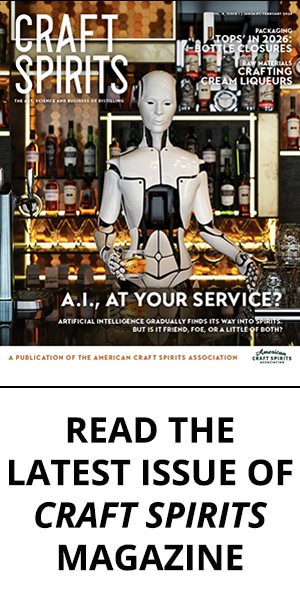Montanya Distillers officially fired up a substantial expansion of its rum distillery in Crested Butte, Colorado. The new and more sustainable distillery increases capacity up to 10 times its past production threshold.
During the expansion process, Montanya founder and owner Karen Hoskin realized when spirits companies talk about sustainability, the implication is that an established way of doing things is worth sustaining. For women, people of color, and environmentalists, there isn’t much history worth celebrating or sustaining in the alcohol beverage industry.
Historically, women didn’t own and operate spirits companies; spirits makers didn’t dedicate themselves to energy efficiency; farm harvesters weren’t treated well (think laborers and sugar cane); mass tasting events didn’t demand proper handling of waste, and salespeople weren’t talking about moderation and wellness. So the question is, what is being sustained?
Over the past decade, sustainability became a hip practice for businesses. As sustainability gained popularity, standards dwindled and messaging became more important than practice. Montanya’s leadership asked themselves: “What are we sustaining and why? Is this what we want to bring into the future?” On their path toward becoming a profoundly purpose-driven business, they repeatedly upended and overhauled almost every established system. “I couldn’t escape the sense that there was more to do, a higher bar to clear. I wanted a revolution,” says Hoskin.
When Montanya set out to change prevailing systems, they looked beyond sustainability and found vitality. Their leadership calls this “vitalism,” which takes their team a significant step beyond sustainability. It describes their approach to changing the culture of the spirits industry and improving an environment that was problematic for many years. This was especially true for Montanya when it launched 14 years ago as a woman-owned brand dedicated to environmental and social responsibility. “We aren’t perfect and never have been, but we continue working toward remaking the alcohol beverage foundation from the ground up,” says Hoskin.
Montanya’s newly-launched distillery expansion (August 2022) radically rethought systems in all operations. A new tasting room (January 2022) evolved its business model and employment practices in Crested Butte, a seasonal ski town. According to Hoskin, “Montanya stabilized staff turnover and employee scarcity and implemented many improved daily practices: from how we source glass to how we biodigest waste, from how we pay our employees to how we chill fermentations, from how we capture and recirculate water to how we print our labels and recycle plastic film. We believe our approach is the future of the spirits industry.”
Vitalism is a deeper interpretation of sustainability than what is common in the alcohol beverage industry. It is a radical overhaul of an outdated system that Montanya wants to continue to challenge. The staff practice vitalism in every aspect of the business, while training colleagues in the industry to do the same.
To learn more, check out the Montanya Impact Report 2021, visit MontanyaRum.com or reach out to Montanya directly.


